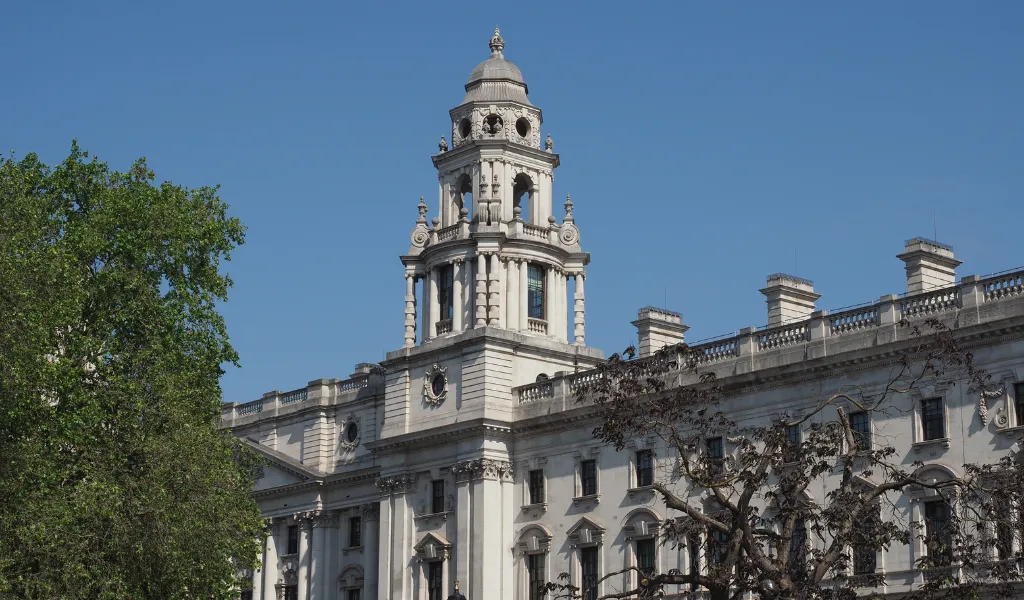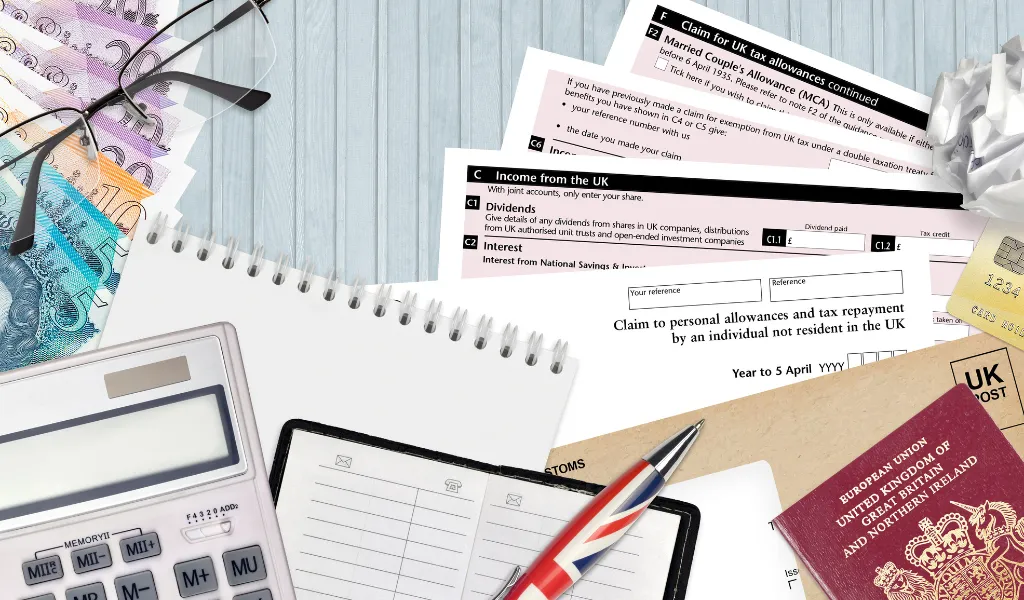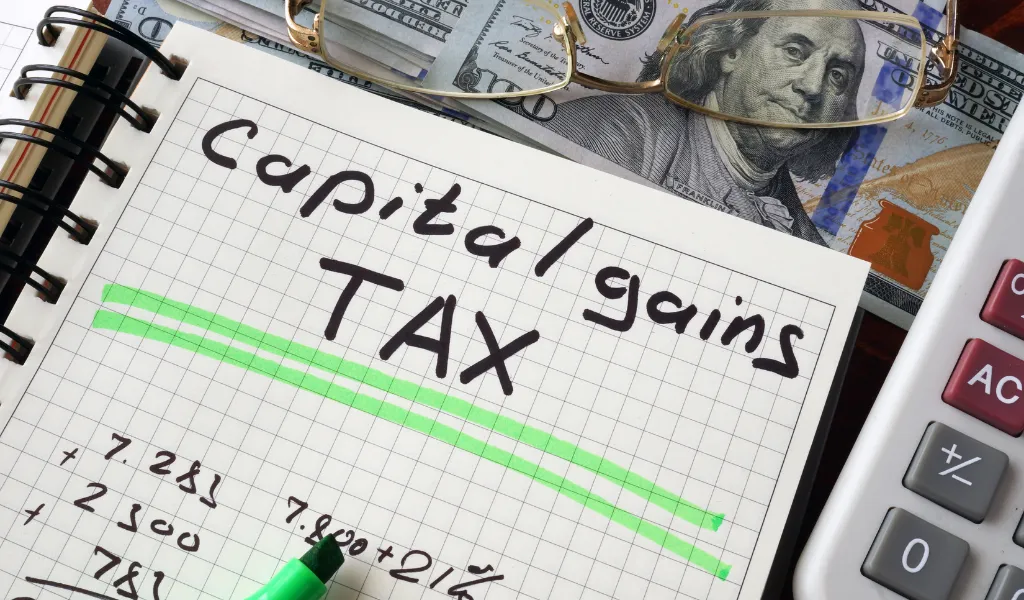If you decide to close your limited company that owes debts to HMRC, then you must deal with a complex situation. When it comes to business, any unpaid debts that you owe to HMRC are a foreboding prospect. As the owner of the company, you will end up facing extremely stressful and wide-reaching repercussions of this action. This guide will cover the process and consequences of closing a limited company with debts to HMRC.
You can get a fresh start by closing your company with unpaid debts to HMRC. This means no more financial pressures that you were facing previously.
First, let’s discuss the severity of owing debts to HMRC. Then, we can move on to the options available to you when liquidating your limited company.

What are the Consequences of HMRC Debts?
HMRC is often the primary creditor when a company is facing financial issues. As a body, HMRC, takes immediate and decisive action in the case of recovering their money. Therefore, if you are in such a situation, then it is important to act promptly.
In case there is any delay in action, it can lead to HMRC forcing your company into Compulsory Liquidation. If this happens, then you are exposed to penalties coming your way personally. The reason behind this is that the liquidator working your case will investigate in-depth. They will assess the actions of all personnel who are running the company.
If HMRC forces your company into liquidation because of the debts you owe, then there are several consequences. These apply to both companies and individuals.
Following are the consequences you will face when closing a limited company with debts to HMRC:
Possibility of Personal Liability
If you, as the director, act negligently and cause liquidation, then you face punishments. For example, fines and disqualification as the director in the future, to name a few.
Effect on Credit Rating
If the liquidation of your company is because of unpaid debts, then this negatively affects its credit rating. This includes the credit rating of the directors. Consequently, you will find it difficult to secure new lines of credit or build a new business in the future.
Harm to Reputation
Unfortunately, entering liquidation results in a significant amount of damage to you and your company. There is a ripple effect on not only the company, if it ever reopens, but also on the director. It affects their ability to run a company in the future.
Please remember that the consequences for both you and your business depend on your individual circumstances. You should seek expert advice when you face the possibility of HMRC or any other creditor forcing you into liquidation. It is necessary to reach out to an Insolvency Practitioner (IP) immediately. They will help you comprehend the options available to you. Moreover, they can guide you to make an informed decision regarding your future.
Closing a Limited Company with Debts to HMRC
Closing your company is a complicated matter on its own. If your company owes debts to HMRC, then it is even more complex and challenging. Thus, as the director of the company who is facing such a daunting prospect because of unpaid taxes, you should navigate through it cautiously.
Here are the main recommendations when deciding to close a company that owes debts to HMRC:
Always Scrutinise the Complete Situation
For all liquidations, you should do this. You need to get a clear idea of what you owe before you can commit to any action. This includes the nature of the debt, associated charges, any accrued interest, etc.
It is important to take your time while assessing the situation. This will give you a solid foundation to solve your fragile and complex situation.
Maintain Honesty and Transparency with HMRC
Anyone who is dealing with overdue debt with HMRC must remain honest and transparent with them wherever they can. The good news is that HMRC is willing to come to an agreement with people and companies that are struggling to pay them. This is because HMRC prefers to find new payment terms that can increase the possibility of repayment of the debts. Therefore, you can keep your company open if you want to. When dealing with HMRC, honesty is essential. Thus, you should know how to deal with closing a limited company with debts to HMRC.
Consider the Available Options
When you decide to close a limited company that owes debts to HMRC, you have a few options available. These include the following:
Creditor’s Voluntary Liquidation (CVL)
A popular option for insolvent companies that cannot pay their debts is Creditor’s Voluntary Liquidation. To proceed with a CVL, the directors and shareholders voluntarily agree to wind up the company. This is in the best interest of everyone. After this decision, they hire an Insolvency Practitioner (IP) as a liquidator. At this point, you must sell the assets to repay the creditors, including HMRC. The reason that a CVL is widespread is that it is a heavily controlled procedure to close your company. It does so while addressing the current debts of the company.
Compulsory Liquidation
The director does not have a say in this option. Instead, HMRC or any other creditor initiates the process of Compulsory Liquidation. They take legal action to wind up the company since it has unpaid debts. In this case, the courts order the liquidation of the company. Therefore, the courts have control over this process. Therefore, you should know what to do when closing a limited company with debts to HMRC.
Aside from these usual liquidation methods, you can consider the following other ways:
Company Voluntary Arrangement (CVA)
Through this process, the owner of the company can restructure their debts. It involves negotiating with HMRC to decide on new terms.
Administration
Administration is a great way to not only repay your creditors but also rescue the company in the long run.
Every option has its benefits and drawbacks. Some of them can result in the closure of your company, whereas other can save it. If you do not know which method is right for you, you should contact an insolvency expert.
Evaluate Other Factors
As the director of the company, it is necessary that you consider every factor. Suppose you forget that you signed a personal guarantee for any company debt in the past. Then, you are stuck in a tough situation. Even after your company goes into liquidation, you will face trouble. Therefore, you must leave no stone unturned in determining what your position entails.
Notify Your Employees Immediately
If you have employees in your company, then it is essential that you notify them regarding the closure immediately. Additionally, you must discuss with them the implications of this process that they will bear. Consequently, you should follow all standard employment processes to prevent any further financial difficulties.
Cooperate with the Liquidator
It is the responsibility of the director to cooperate with the liquidator during the process of liquidation. Therefore, you need to respond to all requests for documents and information. Make sure to consider all this when closing a limited company with debts to HMRC.

What is a Creditor’s Voluntary Liquidation (CVL)?
Now, what does it mean to get a Creditor’s Voluntary Liquidation (CVL)? Well, the directors of the company implement this formal procedure when it is insolvent. If a company does not have enough money to back debts, then a CVL is sometimes the only option. For directors and shareholders, it is a common way to deal with insolvency voluntarily.
Usually, directors start a CVL. They agree to organise meetings of creditors and shareholders to discuss liquidation of the company.
After the agreement, the director of the company contacts an Insolvency Practitioner (IP) to handle the Creditor’s Voluntary Liquidation.
Once the members and creditors appoint an IP, their three major objectives are the following:
- Realising the company’s assets.
- Investigating the directors’ conduct and company’s affairs.
- Agreeing to claims of the company’s creditors.
When a company does not appear viable after restructuring, then a Creditor’s Voluntary is an appropriate option. Thus, you must understand what to do when closing a limited company with debts to HMRC.
What is a Compulsory Liquidation of a Company?
A creditor uses the process of Compulsory Liquidation to force an insolvent company to liquidate to pay back debt. Someone who is owed money is called a creditor.
It is also called as winding up of a company. A creditor pursuing the company for money leads this procedure under the Insolvency Act.
It is noteworthy that even after the commencement of the Compulsory Liquidation; it is possible to implement Creditor’s Voluntary Liquidation. Nevertheless, a company’s director initiates this instead of the creditors.
Constraints on Establishing a New Company After Closing a Limited Company with Debts to HMRC
Once you close your old company, there is an issuance of an application to Companies House. This happens when you start your new company.
However, restrictions exist in this case as you are closing a company that has debts. It is not so simple to start a new business after this scenario. You need to consider the following factors:
1. Reusing the Name of Your Previous Company
Legal restrictions apply when using the same name as your previous company for your new company.
You cannot use the same or similar name if your company liquation process is through compulsory liquidation. It is forbidden according to Section 216 of the Insolvency Act 1986.
Suppose you were a company director or shadow director at any time during the 12 months before liquidation. It is illegal for you to involve yourself in a company with the same name for up to five years. Or even if it is a similar name. Therefore, you must know how to handle closing a limited company with debts to HMRC.
Three Exceptions to Reusing the Old Company’s Name
The first exception is when the new company obtains the whole of the insolvent company or most of the total. Also, an Insolvency Practitioner acting as the liquidator, administrator, or supervisor of a voluntary arrangement must arrange it.
Reusing the company’s name in this situation requires passing notice in two for forms of rule 4.228:
- You must send a submission to the London Gazette. This should take place within 28 days of buying assets of the old company from the liquidator. Also, taking on the company’s name. You need to state in the notice that you are the director of a new company with the same name. Or even if it is a similar name.
- It is necessary to inform each creditor that you are the director of a new company with a similar name. Or same name.
Moving on to the second exception, which is under rule 4.229. This involves the new company asking permission from the Court to reuse the name of the previous company. This is also called leave. You need to meet the following two conditions before taking this path:
- You must apply for the court ‘leave’ within seven days after the liquidation of the previous company.
- The court will grant the ‘leave’ no later than six weeks after this date.
Lastly, the third exception lies under rule 4.230. It has the following conditions:
- For at least 12 months before its liquidation, the company must have that name.
- In the last 12 months, the company cannot have been dormant.
Hence, it is important to know how to proceed when closing a limited company with debts to HMRC.
2. Payment of Security Deposit
You may need to place a security deposit if HMRC suspects that your new company will not pay its tax on time. For example, a bond or a fixed security payment.
HMRC will settle the balance with the security deposit if you do not pay your taxes. Furthermore, you cannot use high-value items or property for this security deposit.
3. Sale of Assets and Goods
You cannot sell the assets of your previous company at a lower than market value price. It is a fraudulent act to do so. Yet, it is possible to sell the assets quickly at a discounted rate when your company is in trouble.
Please make sure that your business sale is legitimate. Otherwise, creditors can bring it up in court that you sold the assets at a discounted price.
4. Transferring Employees
When employees transfer from their old company to a new one because of CVL, then TUPE is not applicable. Or because of Compulsory Liquidation. TUPE stands for Transfer of Undertakings – Protection of Employment.
Therefore, contract terms, working hours, and other benefits are modifiable without unfairness.
5. Personal Debt Guarantee
You are not personally responsible for the debts of your company, as a limited company is a separate legal entity. Nevertheless, responsibility could fall on your shoulders as the director if you signed a personal guarantee and the company cannot make the debt repayments. Additionally, the liquidator can pursue you for repayment if you overdraw a director’s loan.
6. Limitation on Credit Accounts
Assume that your previous company did not have good relationships with creditor or a reputable credit history. Then, you are not likely to get a credit account for your new company without more security. For example, stricter terms or advance payment. Now, you know how to proceed when closing a limited company with debts to HMRC.
Conclusion
To summarise, it is never easy to close a Limited Company with debts to HMRC. In most cases, liquidation is the recommendation, as it is the only option. However, you should seek expert advice to find out if dissolution is a viable choice for you.
Deciding to close a Limited Company with debts is a complicated, often emotional decision, and Future Strategy has dealt with many directors who find themselves in this position. Usually, it’s recommended that liquidation is the only option, but we urge you first to gain expert advice on whether dissolution is viable.








